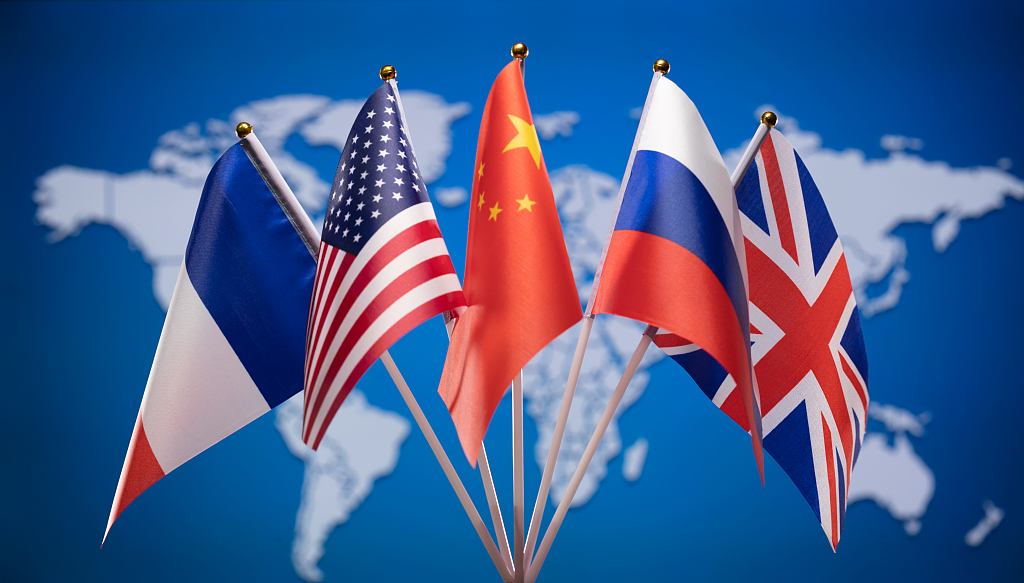Exclusive Interview
PIR Center interviewed Ambassador Thomas Greminger, Director of the Geneva Center for Security Policy and former Secretary General of the Organization for Security and Co-operation in Europe (2017-2020). During the conversation, we discussed the future of the P5 process and the role of the Nuclear Five (Russia, the United States, the United Kingdom, France, and China) in preserving the NPT in the context of the contemporary geopolitical environment and emerging challenges.
The interview was conducted by Ksenia Mineeva, PIR Center Information & Publications Program Coordinator.
Ksenia Mineeva: Is there a future for the P5 process?
Ambassador Thomas Greminger: There is, yes. I think the question is: Is there enough political will among the P5 or the N5 to live up to expectations? There are high expectations by non-nuclear weapon states, as, on the one hand, the N5 are the major nuclear states, and on the other hand, they happen to be the P5 in charge of peace and security. So, I think it’s legitimate to have high expectations.
Now, the good thing is that it still works, but we all know it only works on the expert level. And even these expert-level discussions have proven to be very difficult. And I think the big majority of states – non-nuclear weapon states – would expect more. In that sense, there is an expectation that the N5 manage to compartmentalize, that is, to separate these important nuclear issues from this geopolitical fallout, from geopolitical contamination, and protect them to a certain extent.
Will we see more or less a continuation of the current muddling through also on an expert level? Or is there a will to exploit the format more extensively? Try, for instance, to also pick up all those issues that are now on the horizon. I hope that there is a commitment to be more ambitious.
Ksenia Mineeva: How do you see the development of the P5 process?
Ambassador Thomas Greminger: I think one very basic priority should be to serve the NPT process as constructively as possible. And again, given the particular responsibility of this group, if it gets its act together, it will radiate positively on the NPT, and if not, it’s exactly the opposite. So, I think there is a strong responsibility by the group to make sure that the NPT remains on track and gets perhaps new stimuli and impetus. So that would be one expectation.
Another expectation, and I’m a realist, I’m not asking for nuclear disarmament from the N5 for the time being. I know that this is not going to happen. Of course, many non-nuclear states would not agree with me, but what I expect is serious nuclear risk reduction. I think, given today’s vulnerabilities linked to emerging technologies, for instance, the interface between the AI and the Nuclear Command, Control and Communication, it’s high time that the N5 pick up these nexus challenges.
Ksenia Mineeva: What steps should countries be guided by in order to overcome the contradictions and move forward? What are the common ideas and principles?
Ambassador Thomas Greminger: What is the secret ingredient? I think it’s a responsibility. The work of diplomats is also very important. I think the diplomats need to be a bit more risk-taking, a bit more daring. But clearly, in the end, you also need political leadership and statesmanship. It is not easy. But do we have a choice? I think it’s just too much at stake today. We need political commitment, which then gives the space for good, engaged, committed diplomats to do their work. Therefore, we need both: committed diplomats backed by political leadership. And that’s what I would expect.
Ksenia Mineeva: And what role can non-governmental organizations play?
Ambassador Thomas Greminger: They can play an advocacy role. The NGOs can ask governments to be accountable for their promises and commitments in, for instance, the NPT framework. But they can also be platforms to develop fresh ideas and serve as a breeding ground for decisions that, perhaps, are just not yet ripe for the official process and can be explored on a more informal level. These platforms are most of the time run by NGOs, civil society organizations, etc. This is their important function. At the same time, they cannot replace statesmanship or political leadership but can encourage it. You will still need enlightened political leaders and the support of civil society; you need a mix of both if you really want to move forward.
Key words: NPT; International Security
NPT
F4/SOR – 24/06/03




